A 3-Year Denizen Jeans Review | Good Value, or Just Cheap?
Does cheap necessarily mean worse quality? It depends on what product you are talking about. In the world of jeans, let’s take a closer look.
I own several pairs of Denizen by Levi jeans. How I found my way to these jeans is very simple: they are sold at Target, and I love Target.
The Denizen brand was started back in 2010 and is owned by Levi Strauss and Co. When creating the line, the objective was to develop a wide variety of fits and, importantly, flexible fabric for consumers. They really did just that, with fits offered in skinny, slim, slim tapered, relaxed, straight, super skinny, bootcut, slim straight, boyfriend, and wide leg.
[Further Reading: The Best Selvedge Denim: 8 Solid Brands for Quality, Value, & Weirdness]
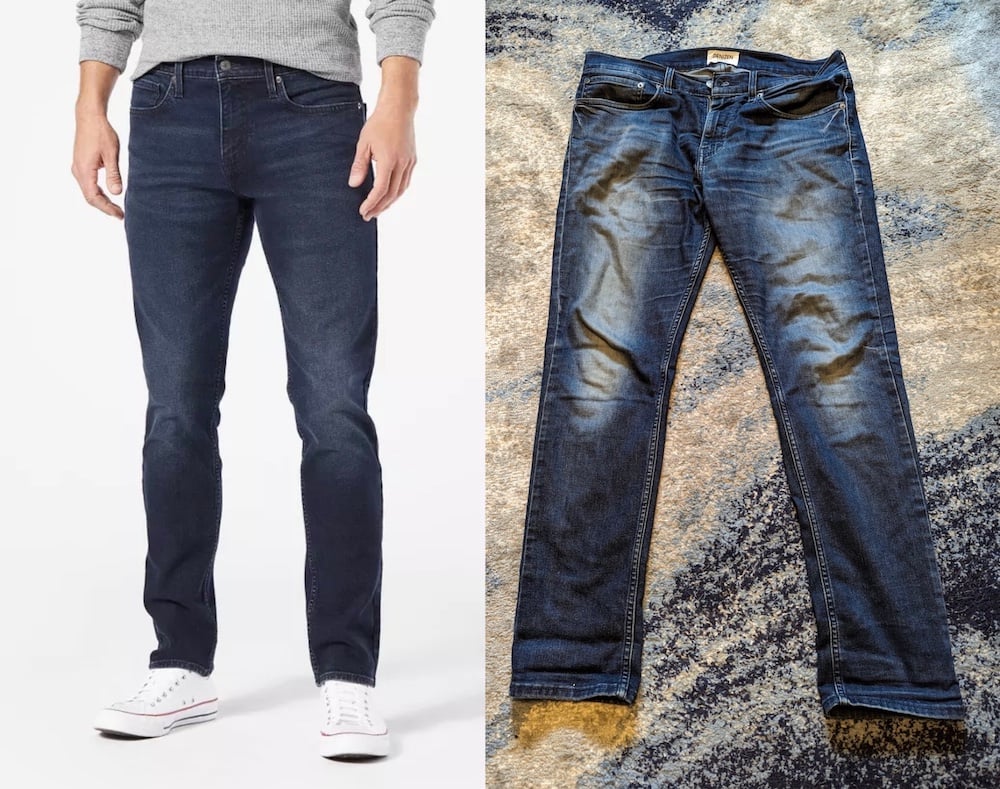
Pros
- Inexpensive, so you can buy multiple pairs.
- Flexibility in the fabric will fit to different body types
- Large variety of fits so you should find something that works for you.
- They roll up great with a pair of boots and won’t hug the top of the boot too tight.
- Polyester will help keep shape over time better than strictly cotton jeans.
Cons
- Colors will fade on the quicker side.
- My Skinny fit sits just a little low, so keeping a shirt tucked in can be difficult.
- Materials are not as high quality or distinctive as higher end jeans.
- Jeans are made in China so you’re losing out on American craftsmanship.
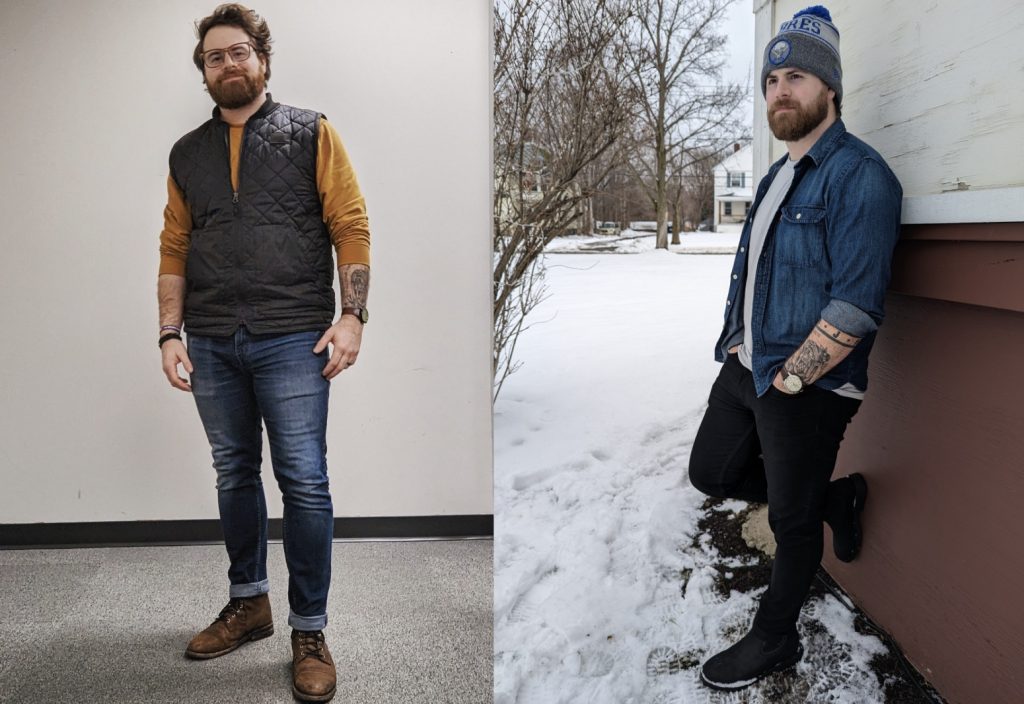
My “Skinny” Model
This isn’t all that out of the ordinary for mass produced jeans, so for me it really was less about availability and more about how they fit.
I have the 288 model, which is the Skinny fit in both blue and black. I usually go for skinny jeans, but it’s always a crapshoot with how they fit. Sometimes they are too tight at the waist, other times too tight at the ankle.
When I tried Denizen, it definitely felt better than a lot of mass produced jeans I’ve tried. They are comfortable in the thigh without clinging to me, and still give me enough room down at the ankle where I could either wear them stacked or rolled up.

The Materials
- 73% cotton
- 26% polyester
- 1% elastane
Now this is where it can get tricky.
When you hear about polyester and elastane in jeans, some people want no part of it. When you get into the higher end jeans, you’re more than likely going to see 98 to 100% cotton. So people tend to assume polyester in jeans automatically makes them lower quality.
However, polyester really helps the jeans keep their shape over time. The material itself doesn’t automatically lower the quality of the jeans, it’s more about whether you have philosophical problems with artificial materials. (It’s true that polyester takes a lot longer to biodegrade.)
Importantly, if you’re someone like me who has bigger legs, the elastane is going to help stretch to your body but the polyester will still help the jeans keep their shape overall. It’s rare for guys with thicker thighs to wear 100% cotton. Elastane blends are more forgiving — especially if your weight fluctuates — and the polyester helps to keep them from stretching out.
[Further reading: How to Get the Best Jean Fades]

But let’s compare with higher end jeans. Boutique brands tend to cater to individual consumer needs more than mass produced jeans. The fabrics are often bolder, so you could for example get slubby denim, which is made from indigo yarn of differing thickness, (which gives a more more textured design) or a neppy denim, which is where small tufts of cotton protrude to give a ‘snowy’ look to the jeans.
Beyond that, you will typically have cotton that is coming off of more vintage looms in higher end raw denim vs. what you would see coming from a mass produced brand. This offers much more precision and character in the fabric. With Denizen, you aren’t getting anything that offers such unique or rare aesthetics because they’re made with faster, cheaper projectile looms — it’s run of the mill, but that means you really know exactly what you are getting.
According to Levi’s, their jeans have been preshrunk which is a big difference between Denizen and raw denim brands. Again, this means you have a good idea of how your jeans will fit in perpetuity, whereas all-cotton jeans (especially when made with raw denim) tend to shrink and stretch based on when you’ve last washed them.
As far as fabric weight, Denizen jeans come in at 12 ounces per square yard. This is a standard weight, but it’s important to note. If we look at something like the Brave Star Selvedge jeans, some of them come in at 21.5 ounces, almost double the weight of Denizen. You don’t have a thick option for Denizen, but that really just means they come in at the standard weight of the jean industry and won’t feel too hot or bulky.

Caring for Your Denizen Jeans
- This material is easy to care for
- Wash and dry ’em like any t-shirt
- (Although line drying is always better for longevity)
When it comes to the care for these jeans, I don’t really do anything out of the ordinary in maintaining them. I wash them at regular intervals and actually dry them as well some of the time. Between them being sanforized and partially made of polyester/elastane, you really don’t have to worry about any shrinkage from wash to wash, as long as you aren’t running them through the dryer weekly.
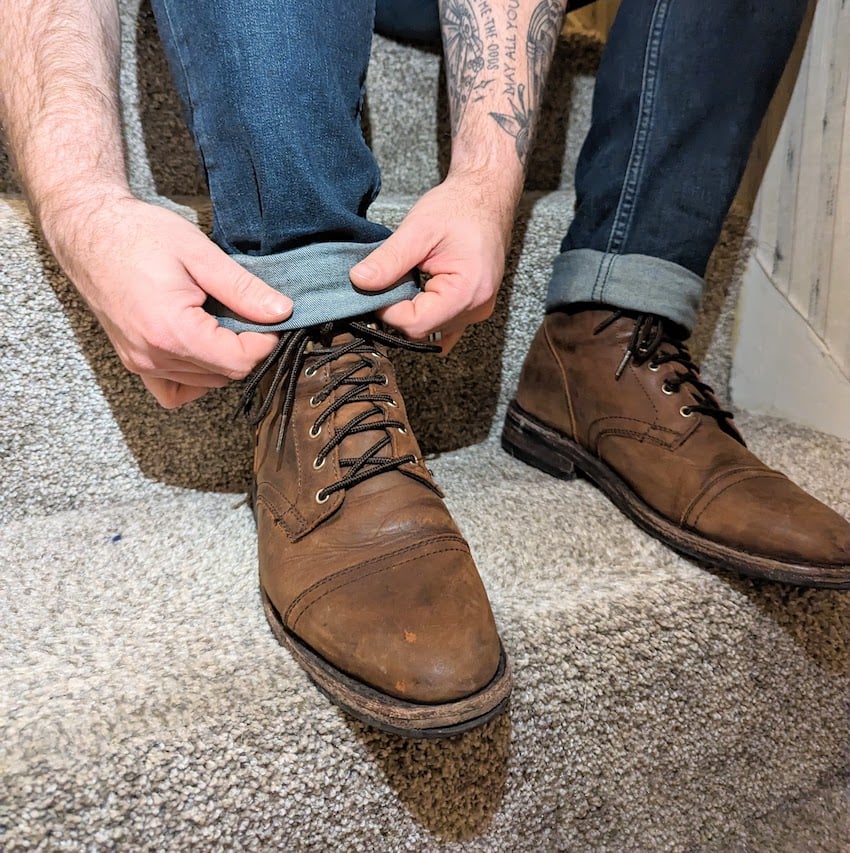
Denizen Jeans Price
- $32.99
Now, the price is really something to behold. These jeans come in dirt cheap at $32.99. That’s a price that could surely be in anyone’s budget.
But as we’ve mentioned, that doesn’t mean you are sacrificing a tremendous amount of quality. Are they designer jeans? Of course not. But does that make them unwearable? No way.
While there are plenty of people that will write off any jeans with materials like polyester and elastane, the fact of the matter is, these jeans for me have been durable over years of wear. While the colors may have lightened a bit, the construction is still very much in tact, which in my experience you don’t get with other mass produced jeans. But let’s look closer at the pros and cons.

Final Thoughts
When it comes down to it, Denizen jeans are what they claim to be. They’re affordable jeans with a fit and design for any consumer and aren’t going to rip or wear down on you. They are readily available at a great price but aren’t sacrificing style and comfortability. For someone like me who wears jeans to work, they are a great choice because they look just as good with boots or loafers as they do with sneakers.
The major downsides people seem to point out is the overseas production and the differing materials that will more than likely fade quicker than your boutique jeans. But hey, for roughly $30, these jeans are doing everything I hoped they could, and aren’t making me wish I had my money back.


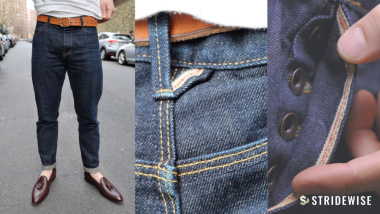
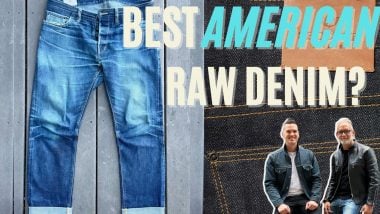
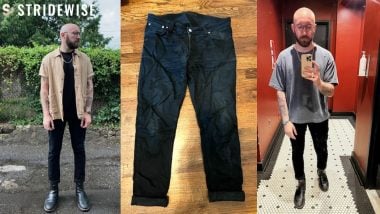





“It’s rare for guys with thicker thighs to wear 100% cotton”.
NO, it’s not. It’s instead, weird when guys who aren’t skinny, pick skinny jeans. They look terrible in that situation. Hint: they’re called skinny because some people ARE skinny. How is this not obvious I will never understand. Also, it is not at all just high end jeans that are 100% (or very nearly so) cotton. Preference is usually not whether synthetic or natural but rather how cotton wears and handles sweat/humidity/etc. and particularly when you don’t get the WRONG cut for your body type, that shrink to fit is a good thing, but not just shrink but also stretch to fit. The all cotton become shaped closer to your body shape and I don’t mean if they are tight skinny jeans, rather if they are NOT tight skinny jeans they still do so it is the best of both worlds.